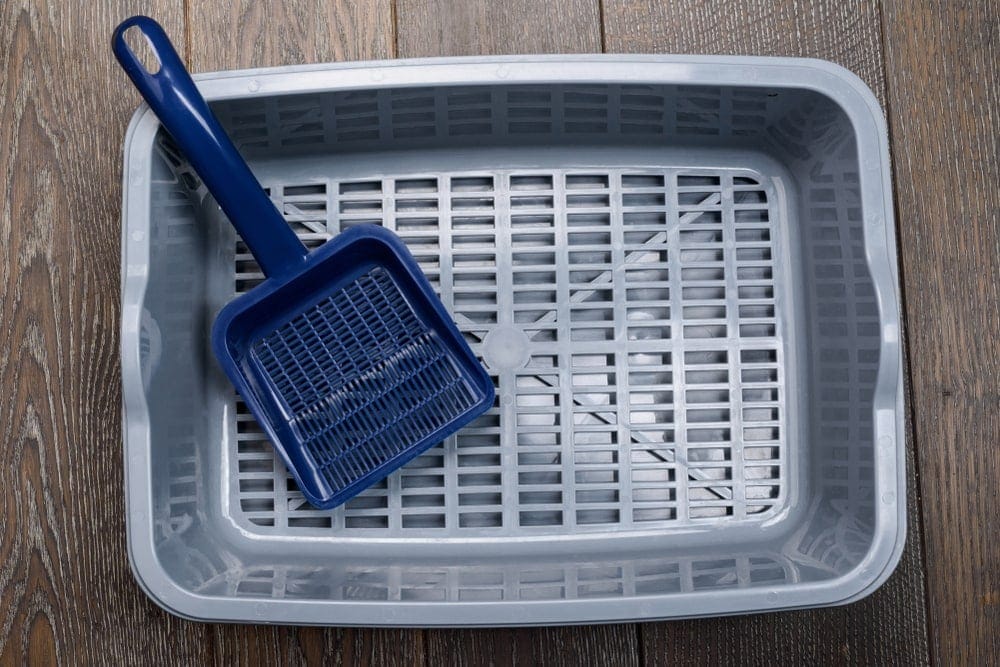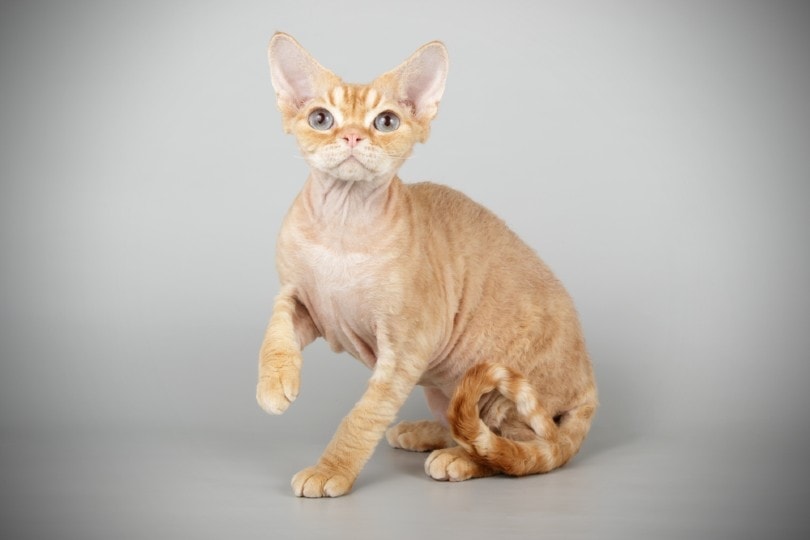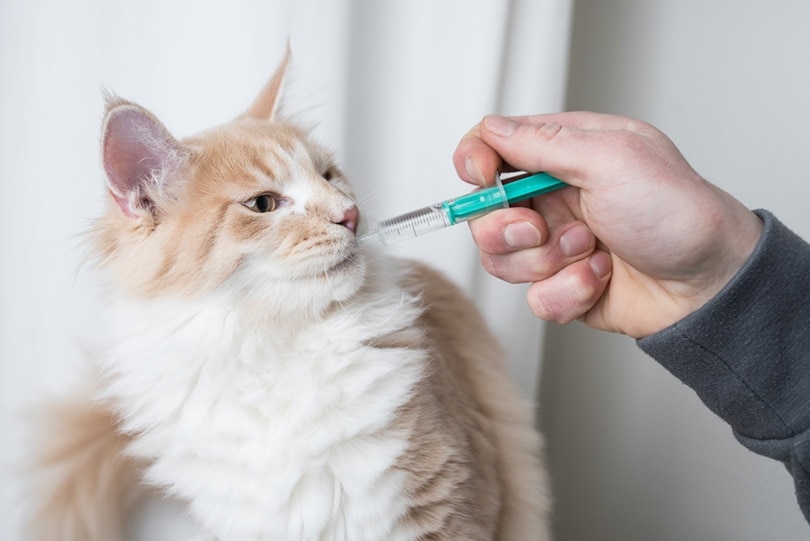Can Cats Eat Sauerkraut? Health & Nutrition Facts
By Lisa Hertz
Updated on
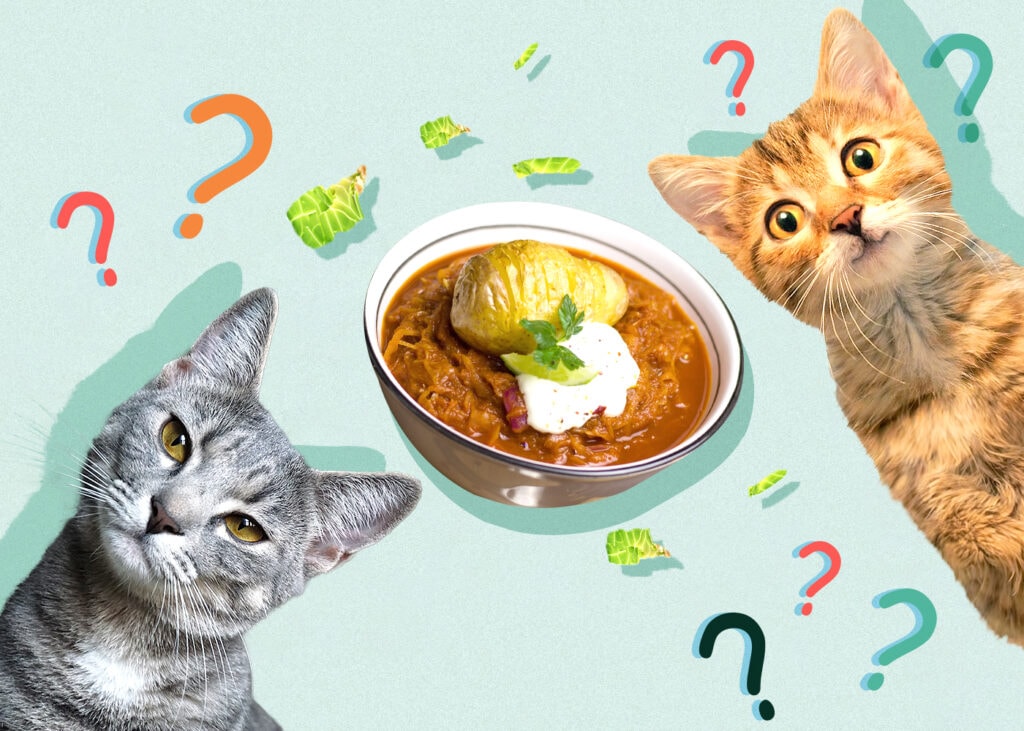
Most cat owners would be surprised if their cats developed a taste for sauerkraut. The ingredients in sauerkraut are not on a cat’s typical menu, and that distinctive taste and smell can be a turn-off for many cats.
While some cats are finicky eaters, others are more adventurous and have been known to eat random human foods like potato chips and pizza. If your cat happens to like sauerkraut, a tiny taste isn’t dangerous, but it’s best to avoid giving it to your cat.
What Is Sauerkraut?
Sauerkraut is raw cabbage that has been chopped or shredded, salted, and then left to ferment in an airtight container over time. Although it can taste and smell like vinegar has been added, it undergoes a natural kind of pickling process from a type of bacteria that produces lactic acid.
Sometimes other ingredients are added, such as apples, beets, and caraway seeds. Sauerkraut can be eaten raw, or it can be cooked and served warm with other foods like pork.

Is Sauerkraut Good for You?
Sauerkraut and other fermented foods can have health benefits for omnivores like us humans. It is a good source of probiotics, vitamins, minerals, and fiber. Omnivores are animals that eat both plants and meat. Cats aren’t omnivores, they’re obligate carnivores, which means that they need to eat a strict animal protein diet.
Since sauerkraut is a vegetable, it’s not a food that a cat would normally eat, regardless of its health benefits for humans.
Is Sauerkraut Bad for Cats?
Fermented foods like sauerkraut are growing in popularity because they’re healthy, but does that mean they’re good for pets?
Dogs are omnivores like us, and less picky about food than cats, so health-conscious pet owners have better luck feeding their dogs food like sauerkraut.
Most cats will cringe when they get a whiff of sauerkraut, but on the chance that your cat likes it, is it safe to eat? Overall, it is not a toxic food for cats but there might be some additional ingredients in different sauerkraut recipes, like garlic, could be harmful. However, the scent will most likely deter cats from wanting to try sauerkraut more than once!
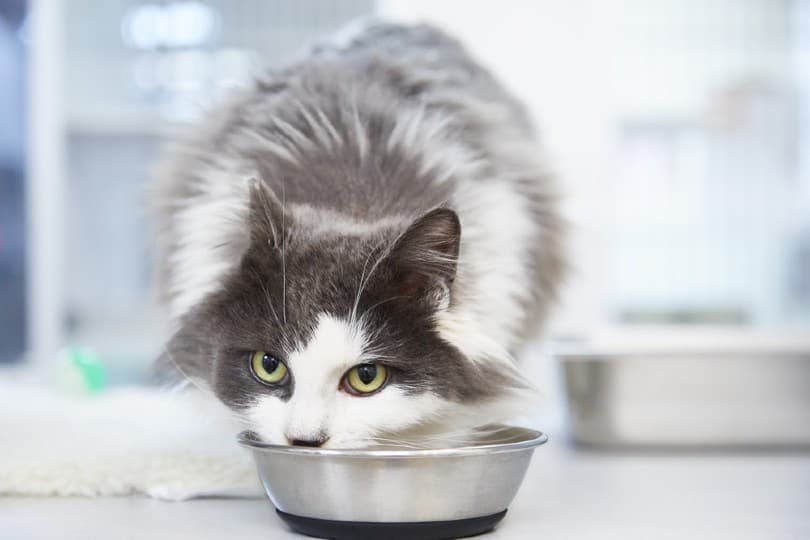
Can Cats Eat Cabbage?
Aside from salt, the main ingredient of sauerkraut is cabbage. Is that safe for cats to eat? As with many foods, a taste of cabbage will not harm your cat, but there are risks in eating too much of it.
The biggest issue is that cabbage is a high-fiber vegetable, which can cause painful gas and bloat in your cat’s gastrointestinal tract.
Eating too much cabbage can also lead to thiamine deficiency and thyroid issues. This could potentially be a problem if your cat eats a lot of it, but it would be very unusual for a cat to eat large quantities of cabbage.
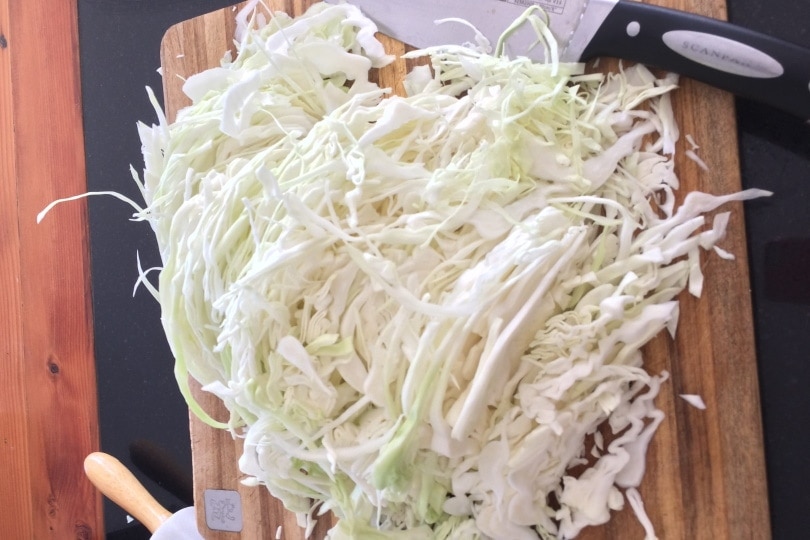
What Are the Bacteria in Sauerkraut?
Sauerkraut becomes fermented through the action of a few kinds of lactic acid bacteria, particularly Lactobacillus.
Are these bacteria harmful to cats? Several bacteria are harmful to a cat’s digestive system. The most common ones to cause GI upset are Campylobacter, Helicobacter, Salmonella, and Clostridium.
The lactic acid bacteria in sauerkraut are not thought to be dangerous for cats. One type of bacteria called Lactobacillus acidophilus was found to be a beneficial probiotic in healthy cats.
Probiotics are a growing trend in pet supplements. Probiotics can be helpful for cats with inflammatory bowel disease and other gastrointestinal problems. Most cat probiotic supplements contain other forms of bacteria, mainly Bifidobacterium and Enterococcus, not Lactobacillus.
If you want to give your cat a probiotic, it’s best to stick with a quality product formulated especially for cats. Feeding your cat sauerkraut is not the same as a probiotic supplement.
Be sure to talk to your veterinarian before adding any kind of supplement, including probiotics, to your cat’s diet.
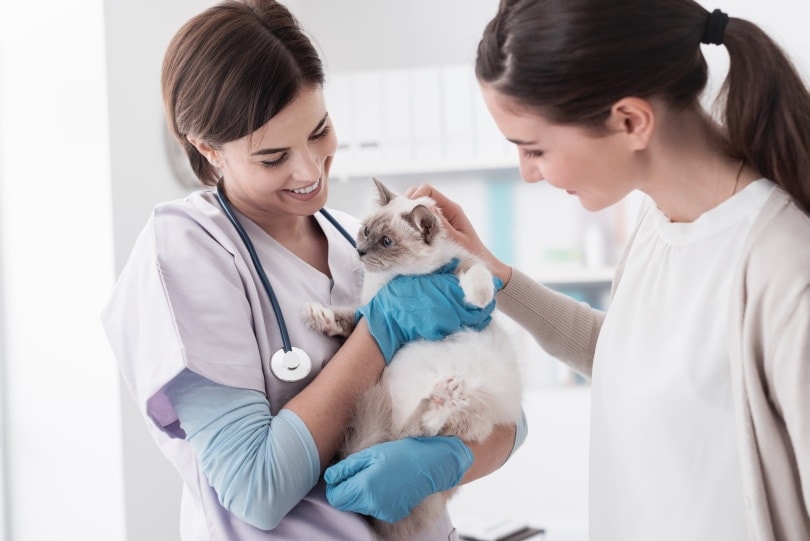
What Vegetables Can Cats Eat?
As we said earlier, cats are obligate carnivores and eat an animal protein-based diet. However, you will see cats sometimes eat grass and other plants. Since most cats are not likely to eat sauerkraut, are there any vegetables that can be added to a cat’s diet?
Cat owners often grow cat grass from a kit for their indoor cats. It’s thought that cats eat grass to help eliminate hairballs from their digestive system. They might eat it to get added nutrients like chlorophyll.
Another vegetable commonly given to cats for hairball relief is pumpkin. Plain, canned pumpkins can help with constipation and hairballs. You can also find it as an ingredient in some cat foods.
Too much pumpkin can cause diarrhea, however, and some vets recommend alternatives to pumpkin, like fiber supplements. Besides pumpkin, you’ll see other vegetables added to cat food, which means that they’re generally safe for cats to eat. The most common ones are carrots, peas, rice, and spinach.
Cats don’t need vegetables in their diet. Some cats may like them, others won’t. A few nibbles are fine when it comes to most vegetables. As for sauerkraut, if your cat likes the smell and taste, an occasional bite is safe, but most cats will probably take a pass on the sauerkraut anyway!
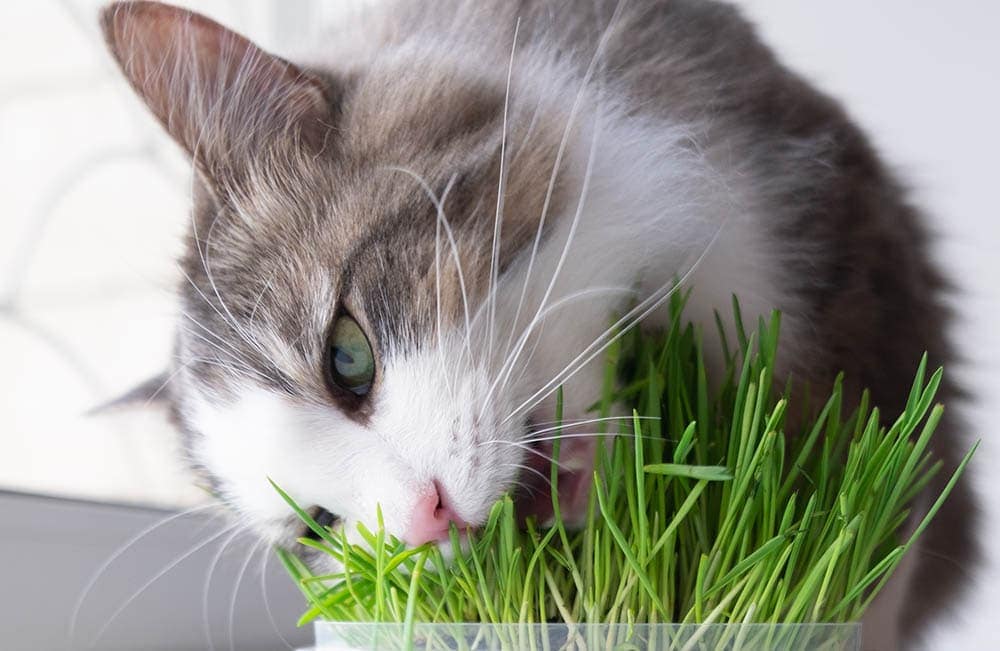
Final Thoughts
While people use sauerkraut to put on hot dogs, sausages, and sandwiches, it is not a food that you should actively feed to your cat. If your cat does sneak a taste of this fermented vegetable, it should not cause harm to them. However, it is advised not to actively feed them sauerkraut. Stick with treats like unseasoned cooked chicken breast or cat treats found at the pet store.
See Also:
Featured Image Credit: alexzrv, Shutterstock

